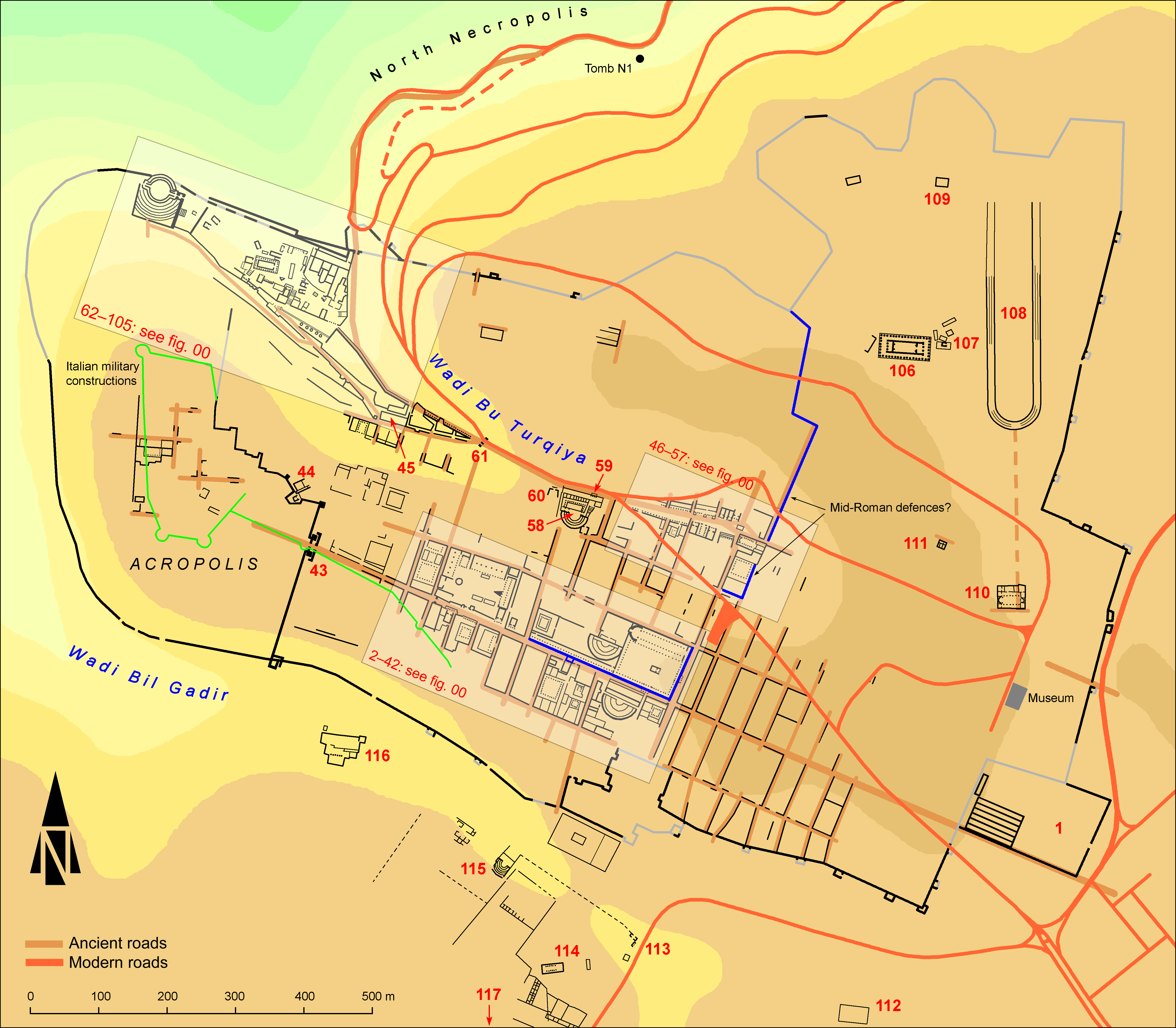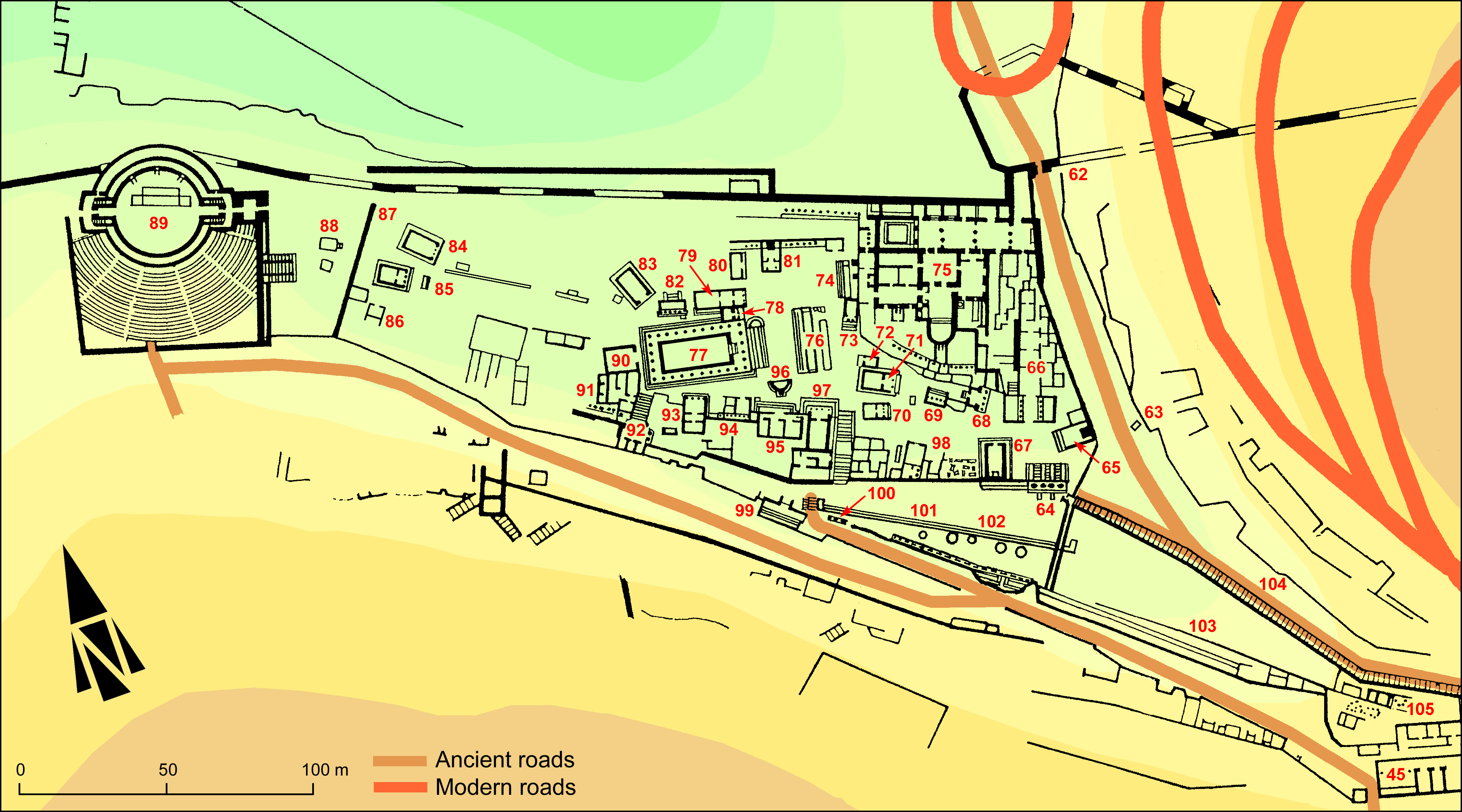EpiDoc XML:
IGCyr0216002
Trismegistos ID:
738239
Source description
Support: Limestone altar with compartment, adjacent and similar to IGCyr0217002 (w: 0.56 × h: 0.34 × d: 0.56).
Layout: Inscribed on front face.
Letters: 0.025-0.03; sigma taller than other letters.
Date: Perhaps fourth century BC (context).
Findspot: Found before 1923 at Cyrene ➚: under vestibule of Byzantine Baths, which was formerly an area belonging to the so-called Agora of the Gods.
Place of origin: Findspot.
Last recorded location: Seen by C. Dobias-Lalou in 1982 in the vestibule of the Byzantine Baths.
Text constituted from: Transcription from stone (CDL).
Bibliography
Ferri 1923, p. 9, n. 8a (no image), whence SEG, 9.137; published again by Morelli, SECir, 218 (no image), as if unpublished; IGCyr 021600 ➚.
Cf. Dobias-Lalou 2020, p. 63, footnote 38.
Text
Apparatus
1: Ἱσ[τ]ίας Ferri 1923; Ἑ[κ]άτας SECir
French translation
(scil. Autel) d'Hestia.
English translation
(scil. Altar) of Hestia.
Italian translation
(scil. Altare) di Estia.
Commentary
Known through a simple mention by Ferri, it belongs to the series of altars with compartments of the so-called 'agorà degli dei'. Neither illustration nor dimensions were given then.
Morelli in SECir, 218 gave no illustration, but from localisation, dimensions and similarity with IGCyr0217002, Dobias-Lalou could trace the stone, although she was unable to provide any useful image for IGCyr. See also Dobias-Lalou 2020.
Morelli's different reading is due to the bad condition of the stone, worn out and covered by concretion. The first sigma being clear, Ferri's reading seems the better one.
CC BY-NC-SA 4.0 Deed Attribution-NonCommercial-ShareAlike 4.0 International License.
All citation, reuse or distribution of this work must contain a link back to DOI: https://doi.org/10.60760/unibo/igcyrgvcyr2 and the filename (IGCyr000000 or GVCyr000), as well as the year of consultation.


